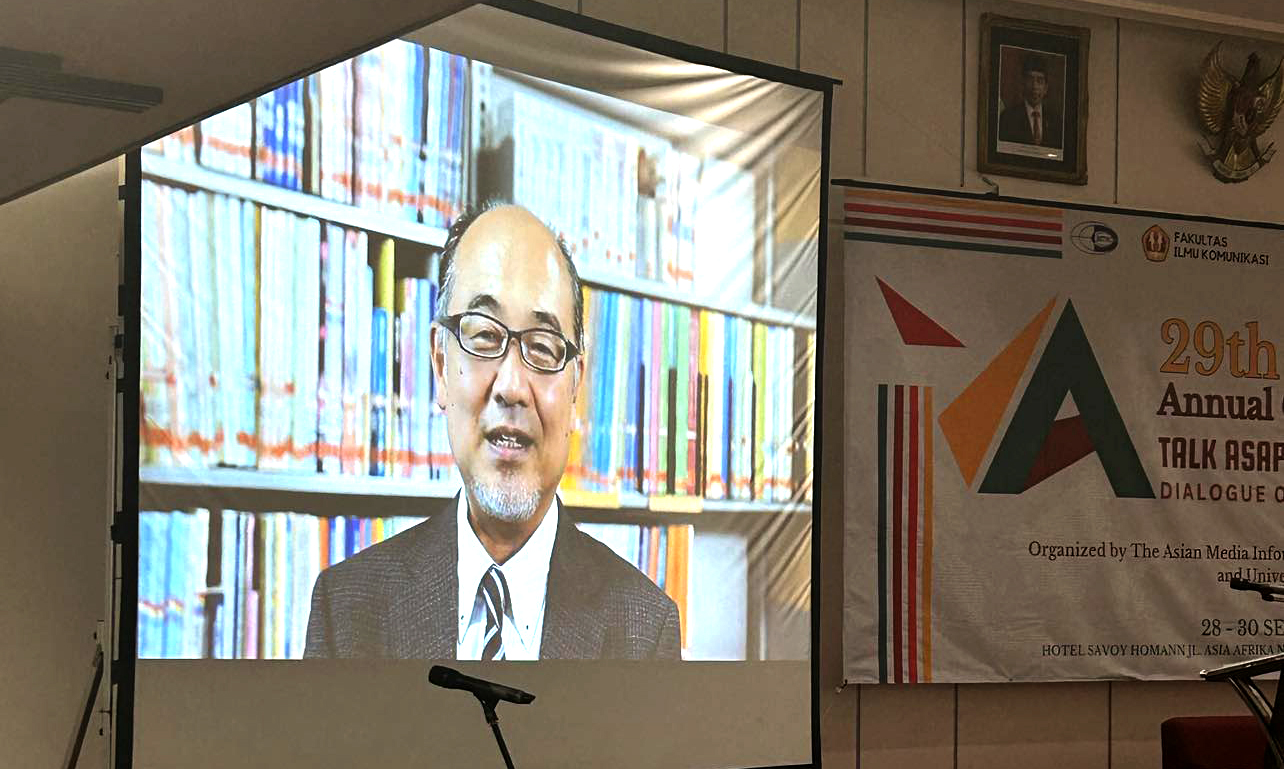JICA's Dr. Yoichi Mine Proposes Afrasia Framework

“The dialogue between Asians and Africans will shape the outlook of the future world.”
This was emphasized by Dr. Yoichi Mine, executive director of the JICA Ogata Sadako Research Institute for Peace and Development as he addressed delegates to the 29th Annual Conference of the Asian Media Information and Communication Centre (AMIC) in Bandung, Indonesia last 28 to 30 September.
Mine, who authored the book Connecting Africa, and Asia: Afrasia as a Benign Community (2022), said that to commence the dialogue between Asians and Africans, he is proposing the frame of Afrasia, a new regional framework combining Africa and Asia. “Drawing up on the spirit of Bandung, I’ve proposed the frame of Afrasia. This notion may be a little provocative but I hope this framing will stimulate our discussion about pan-regional responsibility in a candid way,” he said.
He also emphasized that his framing of Afrasia is based on demography rather than on geography. “The population of Asia will plateau around 2050 and will gradually decline. But the population of Africa is expected to increase five-fold throughout this century.”
Projecting that in 2100, Asians and Africans will each account for around 40 percent of the global population, Mine pointed out that “in combination, the two regions will represent no less than 80 percent of the total. Like it or not, the group of Bandung will become a true majority of the world population.”
He cautioned, however, that such a powerful discourse requires two caveats. First, Mine said, “…one should not confuse Afrasian ethos with the crude anti-Western mindset. The age of colonialism by the West is gone. All Afrasian peoples must share and internalize the norm against hegemonic behavior within the region.”
The second caveat is that “the population growth in Africa in the 21st century will not be an explosion. Child birth decreases everywhere as organizations progress and as women’s economic participation increases,” Mine said.
